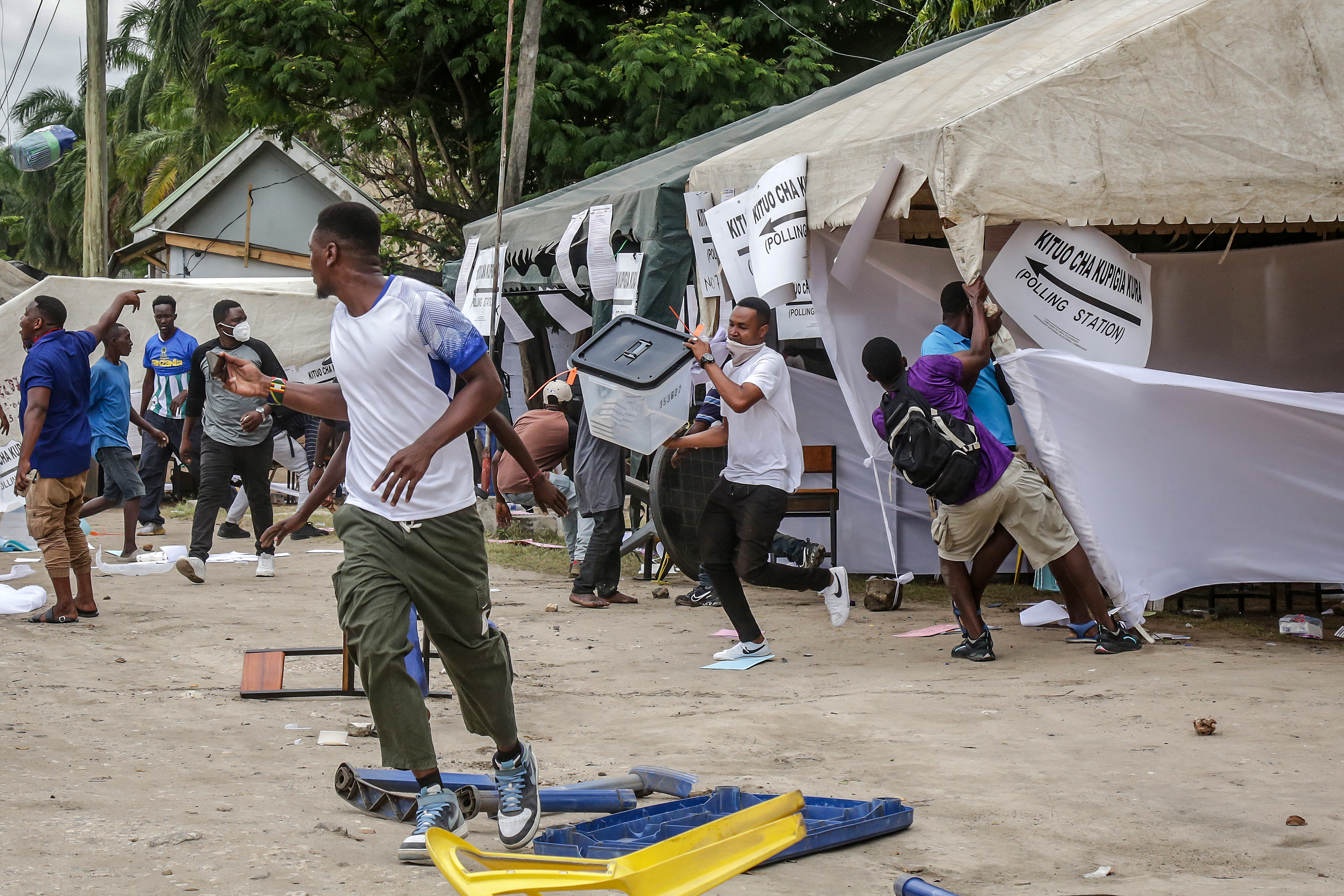The Tanzanian opposition is still battling to calculate the death toll in the state’s violent suppression of protests over last week’s elections. But they say “thousands” died while many more were injured, abducted, disappeared or arrested.
The authorities took down the internet for several days over the 29 October 2025 election, hindering efforts to monitor violence against protestors. But Zitto Kabwe, former leader of the opposition ACT-Wazalendo party, told Daily Maverick on Wednesday, 5 November 2025: “Although it has been impossible so far to get accurate figures of those killed or injured, deaths are in the thousands.”
The other main opposition party, Chadema, which boycotted the elections, also put the death toll at about 1,000. Human Rights Watch quoted Chadema’s spokesperson, John Kitoka, as saying that the party had collected reports of up to 1,000 people killed by the police and unidentified security force personnel in the aftermath of the elections in eight of Tanzania’s 31 regions.
AFP quoted Kitoka as saying last Friday that already about 700 deaths had been counted. However, Al Jazeera quoted Tanzania’s Foreign Minister Mahmoud Thabit Kombo as denying that “excessive force” had been used and saying that the government had “no official figures” on any protesters having been killed.
Read more: Africa’s arc of autocracy exacts a substantial human and economic cost
Human Rights Watch said it had not been able to confirm Kitoka’s death toll but noted that regional and international bodies such as the African Commission on Human and Peoples’ Rights, the Southern African Development Community, the United Nations Office of the High Commissioner for Human Rights, and the European Union had raised concerns in their public statements about the large number of fatalities.
Human Rights Watch said in a statement that the Tanzanian authorities had responded to widespread protests after the elections “with lethal force and other abuses”.
Monitoring bodies dismiss result
Even the official regional body, the normally uncritical Southern African Development Community (SADC), of which Tanzania is a member, dismissed the legitimacy of the official declaration of the victory of the incumbent President Samia Suluhu Hassan. She was sworn into office on 3 November, in a ceremony in a military base closed to the public.
The SADC Electoral Observation Mission said in its preliminary statement that because of the disqualification of the two main opposition presidential candidates and other factors, “voters could not express their democratic will”.
It said the arrest of members of the opposition, particularly Tundu Lissu, leader of the largest opposition party Chadema, and the disqualification of other opposition candidates, particularly Luhaga Mpina of ACT-Wazalendo, the second largest opposition party, “raised questions about the fairness of the electoral landscape, especially on the mainland”.
/file/dailymaverick/wp-content/uploads/2025/11/AFP__20251104__82YU7UW__v2__HighRes__TopshotTanzaniaVoteUnrest.jpg)
/file/dailymaverick/wp-content/uploads/2025/11/AFP__20251029__82CM6HB__v1__HighRes__TanzaniaZanzibarVote.jpg)
It concluded that: “Overall, the 2025 General Election in the United Republic of Tanzania fell short of the requirements of the SADC Principles and Guidelines Governing Democratic Elections.”
Mo Ibrahim, head of the Mo Ibrahim Foundation, which monitors good governance across Africa, condemned the Tanzanian government for its violent suppression of opposition.
He noted in a CNN interview that the ruling CCM party had claimed Hassan won with nearly 98% of the vote in an 88% voter turnout.
“If you are so beloved by the country, if you’re going to get over 90% of the vote, why don’t you just relax and let a fair election take place, instead of really smearing the whole process with blood unnecessarily?” he asked.
Ibrahim also criticised the state for barring the two main opposition candidates from running for president. Lissu is in prison for treason because he criticised the electoral process. Mpina was disqualified by the courts.
Read more: Crackdown on popular dissent in Tanzania as sham election goes ahead
Ibrahim asked: “Why don’t I have just a fair election and allow everybody, instead of putting people in prison, killing people, shooting at young people? That’s not right. What are they afraid of?”
Silencing dissent
With the elimination of Lissu and Mpina, Hassan faced only 16 very small parties in the national elections.
In the separate election on Zanzibar, the electoral commission also declared the candidate of the ruling CCM party, the incumbent Hussein Ali Mwinyi, as the winner of the presidential election in the semi-autonomous island archipelago, with 74.8% of the vote, with ACT-Wazalendo candidate Othman Masoud coming second with an official 23.7%.
“ACT Wazalendo’s national leadership (politburo) is in wide consultation regarding the horrible situation facing the country, including about our participation in Zanzibar’s government,” Kabwe said.
Read more: Tensions rise in Zanzibar with polls expected to be fiercely contested
Masoud had served as vice-president to Mwinyi in the outgoing Zanzibar government, but Kabwe’s statement indicated that might now change.
Amnesty International’s Deputy Director for East and Southern Africa, Vongai Chikwanda, said: “For close to a week now, many people in Tanzania have suffered nationwide internet and electricity shutdowns. Amnesty International is particularly alarmed by reports that amid the blackouts, security forces have used excessive force to suppress and disperse ongoing post-election protests, resulting in the deaths and injuries of protesters.”
“This is the third time in less than a year that Tanzanian authorities have resorted to an internet blockade to silence dissenting voices. Authorities must immediately refrain from suppressing protests and instead respect, protect and facilitate the right to peaceful assembly. They must immediately and unconditionally release all those arrested solely for exercising their right to peaceful assembly.
“Authorities should promptly, thoroughly, independently, impartially, transparently and effectively investigate all killings by security agents and bring to justice in fair trials those suspected of being responsible. Authorities must also provide victims and their families with access to justice and effective remedies.”
The internet was restored this week, although it remained intermittent. DM





 Protesters attack a polling station as clashes erupt in Dar es Salaam on 29 October 2025, during Tanzania's presidential elections. (Photo: AFP)
Protesters attack a polling station as clashes erupt in Dar es Salaam on 29 October 2025, during Tanzania's presidential elections. (Photo: AFP)